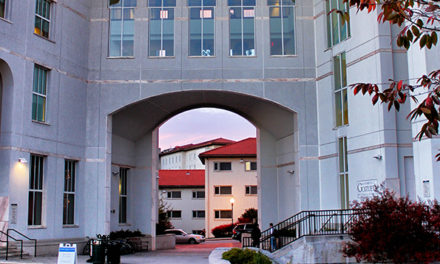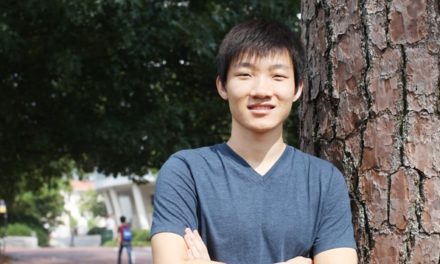Emory “could surely do better” in protecting free speech, Chair of the Emory University Open Expression Committee and Associate Professor of Law Alexander “Sasha” Volokh said at an Oct. 19 “Engaging in Civil Discourse at Emory” forum.
“We have to respect people’s rights to say things, even when we have radically different views,” Volokh said to the about 60 students and faculty members at the event.
The forum emphasized finding common ground among disagreeing parties through effective communication. The two questions that guided the discussion were “How do we train ourselves to be open to listening to the other side?” and “How do we find common ground with people with whom we strongly disagree?”
Volokh opened the event by referencing University President Claire E. Sterk’s “Courageous Moral Action and Community Engagement” call-to-action in February 2017 in response to “the agitation, fear and anger that this campus felt in the wake of ‘sanctuary campus’ protests.”
After Volokh’s introduction, the discussion shifted to hands-on engagement. Professor of Pedagogy in the Department of Spanish and Portuguese Vialla Hartfield-Mendez instructed the audience to form groups of four, in which each individual told a story about a time when he or she said or did something that created an unexpected reaction.
“There’s a way in which if we can listen to the story another person has, we then have access to talk about other things,” Hartfield-Mendez said. The most important rule of the activity, according to Hartfield-Mendez, was to deeply listen and, focus only on the person speaking.
After the activity, Executive Director of Community for Campus Life Ed Lee shifted the discussion to focus on the increasingly digitized world and its negative effect on communication, as people are more likely to use abrasive language through a screen, according to Lee.
“More and more of us are becoming more comfortable communicating digitally,” Lee said. “What that allows for is an unnegotiated and unregulated form of exchange. … We need to learn how to deal with those situations, through face-to-face engagement — not through technology.”
Lee offered some solutions to the growing problem of disagreement and divide, stating that two conflicting individuals don’t necessarily need to come to an agreement, but should mutually understand where the other is coming from.
“We must privilege humanizing the people with whom we have disagreements with; we must share our perspectives, without demonizing those who have alternative perspectives,” Lee said.
The last speaker, Professor of Law and Director of Emory’s Program for International Advocacy and Dispute Resolution Paul Zwier, urged people to have genuine conversations.
“Listen to the person who is talking to you, listen for their underlying interests, needs and goals,” Zwier said. “We often find we have shared interests.”
To illustrate how listening can be a useful tool in conflict resolution, Zwier referenced the Israeli-Palestinian conflict. Cooperation between the two groups could be improved by recognizing that Israelis and Palestinians have a multitude of shared interests, Zwier said.
“The ownership of Jerusalem, for example, seems as though there is very little to do other than fight for it,” Zwier said. “But, there are shared needs between the Jews and Palestinians over that land, such as security, religious right and fulfillment.”
Kaeleigh De Silva (18C) said that these types of discussions should be more common at Emory.
“When I think back to orientation and all of those icebreakers we had to do … they all are so surface level,” De Silva said. “The people that come to these events aren’t necessarily the people that need to be engaging in this type of activity.”
The forum was sponsored by Emory University Senate Committee on Open Expression’s subcommittee on civil discourse.
Former Editor-in-Chief | Madison Bober (20C) is from Hollywood, Florida. She majored in political science and minored in women’s, gender and sexuality studies.




